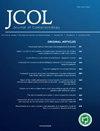Functional Outcomes and Satisfaction Rates of Sacral Nerve Stimulation in the Treatment of One and Multiples Pelvic Floor Dysfunctions
Q4 Medicine
引用次数: 0
Abstract
Abstract Objective Few studies have addressed the use of sacral nerve stimulation (SNS) in the treatment of patients with multiple pelvic floor dysfunctions (PFD). So, we evaluated the functional outcomes and level of satisfaction with SNS in selected patients with one or multiples PFD. Methods A prospective database was used to collect information on eligible patients treated for PFD with SNS, and severity of symptoms was assessed with scores and satisfaction rates by visual analogue scale (VAS) at baseline and by the end of follow-up. Results We recruited 70 patients, 98.6% of whom responded positively during the evaluation period (Global Response Assessment ≥ 50% for at least one type of PFD), resulting in the implantation of a permanent SNS device. Additionally, 49 of the patients (71%) had a single PFD (fecal incontinence [FI] = 38; constipation/obstructed defecation syndrome [C/ODS] = 11), while 20 (29%) had more than one PFD (double incontinence/n = 12; double incontinence + C/ODS/n = 8). All scores improved significantly between baseline (pre-SNS) and the end of follow-up (post-SNS), as did VAS in all groups (single and multiple PFD). The pre-SNS scores were higher in patients with a single PFD, including FI (Cleveland clinic Florida incontinence score [CCF-FI]) and C/ODS (Cleveland clinic constipation score [C-CCF] and the Renzi ODS score). The pre-SNS impact of VAS scores was similar in all groups (single and multiple PFD), but the VAS (post-SNS) was significantly lower (better response) for FI alone compared with multiple PFD. Conclusion The SNS technique is an effective and safe option for patients with one or more PFD refractory to conservative measures. Response was positive for at least two PFD, based on reduced correspondent scores and satisfaction rate.骶神经刺激治疗一次和多次盆底功能障碍的疗效和满意率
抽象目标 很少有研究涉及骶神经刺激(SNS)在治疗多发性盆底功能障碍(PFD)患者中的应用。因此,我们评估了一个或多个PFD患者的功能结果和对SNS的满意度。方法 使用前瞻性数据库收集接受PFD伴SNS治疗的合格患者的信息,并在基线和随访结束时通过视觉模拟量表(VAS)对症状的严重程度进行评分和满意度评估。后果 我们招募了70名患者,其中98.6%的患者在评估期间反应积极(至少一种PFD的总体反应评估≥50%),植入了永久性SNS装置。此外,49名患者(71%)有单一PFD(大便失禁[FI] = 38;便秘/排便障碍综合征 = 11) ,而20人(29%)有一个以上的PFD(双失禁/n = 12;双重失禁 + C/ODS/n = 8) 。在基线(SNS前)和随访结束(SNS后)之间,所有评分都有显著改善,所有组的VAS也有显著改善(单个和多个PFD)。单一PFD患者的SNS前评分较高,包括FI(克利夫兰诊所-佛罗里达失禁评分[CCF-FI])和C/ODS(克利夫兰诊所便秘评分[C-CF]和Renzi ODS评分)。所有组(单次和多次PFD)的VAS评分在SNS前的影响相似,但与多次PFD相比,单独FI的VAS(SNS后)明显较低(反应更好)。结论 SNS技术对于一个或多个PFD患者来说是一种有效且安全的选择,这些PFD对保守措施难以治疗。根据相应分数和满意度的降低,至少两个PFD的反应是积极的。
本文章由计算机程序翻译,如有差异,请以英文原文为准。
求助全文
约1分钟内获得全文
求助全文
来源期刊

Journal of Coloproctology
Medicine-Gastroenterology
CiteScore
0.60
自引率
0.00%
发文量
41
审稿时长
47 weeks
 求助内容:
求助内容: 应助结果提醒方式:
应助结果提醒方式:


